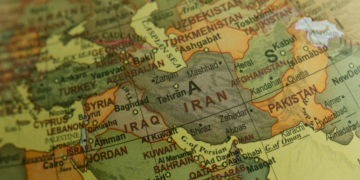On Sunday, May 12th, leading United States politicians escalated their criticism of Israel’s military operations in Gaza, spotlighting the ethical and strategic concerns surrounding the ongoing conflict. In separate interviews, Democratic Senator Chris Murphy and Secretary of State Antony Blinken expressed grave reservations about Israel’s tactics and their implications for the region’s stability.
Senator Murphy voiced a robust critique on CNN, arguing that an all-out Israeli assault in Rafah could strengthen Hamas by causing extensive civilian casualties, thus providing the group with perpetual recruitment material. He said, “I want Hamas gone. I don’t want them to ever have the ability to hit Israel again. [But] I worry that the number of civilians that are dying are ultimately going to provide permanent recruiting material to Hamas, and it will be a threat for years to come.”
He emphasized the necessity of a balanced approach that holds both Israel and Hamas accountable for their actions in the war, urging Israel to reconsider its strategy to avoid long-term detriments to its moral and strategic interests.
Echoing Murphy’s concerns, Blinken’s remarks on CBS’s “Face The Nation” suggested that Israel’s actions were testing the limits of international law. The Secretary of State articulated a pressing need for a credible plan to protect civilians and a clear strategy for post-conflict governance in Gaza, which he argued was currently absent. The Biden administration underscored this stance by pausing the shipment of 3,500 heavy-payload bombs to Israel, signaling a significant policy shift given the mounting civilian toll in Gaza.
Further tension between U.S. and Israeli views surfaced as Netanyahu asserted that a ground assault on Rafah was essential to defeat Hamas. In contrast, Blinken warned that such actions could lead to unsustainable civilian costs and leave Israel grappling with an enduring insurgency. This divergence in tactics highlights the complexities of achieving lasting peace and security in the region.
Amid these exchanges, the international community remains deeply concerned about the humanitarian crisis in Gaza. The United Nations reported that the conflict had resulted in over 34,000 deaths, exacerbating the already dire humanitarian situation. Both U.S. and international responses emphasize the critical need for a balanced approach that ensures military objectives do not overshadow humanitarian considerations.
The ongoing debate among U.S. politicians and international officials reflects a broader reassessment of strategies to address the Israeli-Palestinian conflict. As discussions continue, the global community watches closely, hoping for a resolution that reconciles security concerns with the imperative to protect civilian lives and uphold international law.










